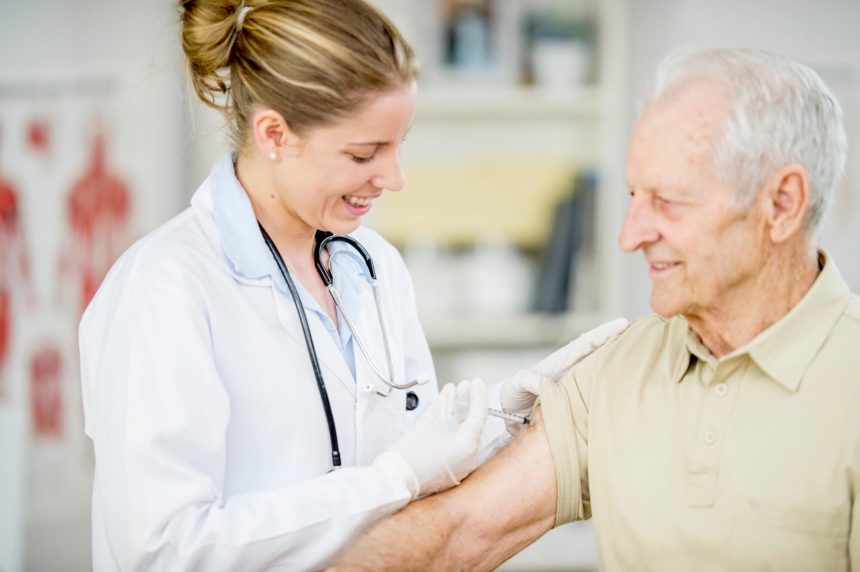Seniors and Medication – 5 Vaccinations All Seniors Should Take
Christmas has come and gone and so has 2019. Unfortunately, the same is not true for the cold and flu season. I hate being sick, and I’m reasonably sure you do too. To that end, I always get an annual flu shot. Since getting the shot, I have yet to get the flu. Knocking on wood that my luck continues. As I’ve grown older, I’ve become more aware of just how much more I need to be doing to stay healthy. One thing I have become increasingly aware of is being current on all my shots. As we age, our immune system changes and seniors need to be more mindful of the shots they need to enjoy a healthy lifestyle. Today, I will be sharing 5 basic shots seniors need.
- Influenza vaccine – According to the CDC, seniors are at a much higher risk than other age groups for developing serious complications from the flu. Furthermore, “it’s estimated that between about 70 percent and 85 percent of seasonal flu-related deaths have occurred in people 65 years and older, and between 50 percent and 70 percent of seasonal flu-related hospitalizations have occurred among people in this age group. So, influenza is often quite serious for people 65 and older.”
- MMR vaccine – Ryan Allen, writing for Alternatives for Seniors, citing the CDC and others, states, “According to the CDC, people born before 1957 were exposed to measles epidemics and have thus likely developed an immunity to the disease, so they do not need to undergo vaccination when they’re older. However, individuals who received an inactivated measles vaccine in the 1960s, or were never vaccinated when they were a child, are recommended to get another round of shots, as is anyone born after 1957 who has no record of ever receiving the MMR vaccine.”
- Tdap booster – Hallie Levine, a freelance editor, and journalist, writing for Consumer Reports, cites authorities, stating, “even if you were vaccinated against pertussis as a child, protection wanes over time. In fact, though the Tdap vaccine appears to safeguard most people from tetanus and diphtheria, and about 80 percent from pertussis, a 2016 Canadian study found that pertussis protection fell to 41 percent after eight years.”
- Shingles (Zoster) vaccination – Navjot Jain, an internal medicine specialist at The Ohio State University Wexner Medical Center, when interviewed by Healthline, explained that “shingles is an offshoot of the chickenpox virus and while many people have experienced chickenpox and therefore have the dormant virus, those who experienced chickenpox before they were 18-months old are considered to be at a higher risk. Basically, shingles is the activation of the varicella zoster virus, which causes chickenpox,” Jain told Healthline. “Herpes zoster, which causes the vesicular rash associated with shingles, is a reactivation of the varicella zoster virus.” People age 50 and older are strongly urged to get the shingles vaccination.
- Pneumococcal vaccination – Writing in Clinical Advisor, Tara Caldwell, BSN, RN, DNP, APRN, FNP, reported: “pneumonia in older adults remains a leading cause of morbidity, mortality, and increased healthcare costs.” Furthermore, “in 2016, the Centers for Disease Control and Prevention (CDC) reported influenza/pneumonia as the eighth leading cause of death in those aged 65 years and older.”
Of course, there are other shots you may need, especially if you suffer from a chronic disease. Other shots your physician may recommend might include Hepatitis A and B, or meningitis. I hope you understand the importance of these vaccinations and how they can keep you or a loved one independent. As with anything else, be sure to consult your physician about necessary shots and other tools that will keep you on a healthy path.


Recent Comments